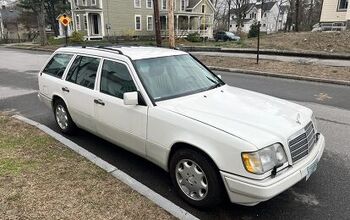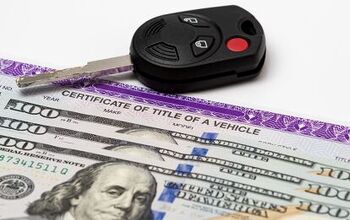Toyota Targets 2015 Fuel Cell Sales… At A Six-Figure Price Point
Think hybrid and electric cars are expensive? Wait until automakers start selling hydrogen fuel cell cars. Toyota tells Automotive News [sub] that it’s targeting global sales of a “few thousand” fuel cell vehicles by 2015. But because the technology will be rolled out due to emissions standards rather than widespread market demand, expect the price for the hydrogen Toyotas to be breathtakingly high. Says Toyota Europe’s Vice President for Product Planning & Marketing Alain Uyttenhoven
We could expect a fuel cell vehicle to retail at about 100,000 euros in Europe.
Phew! All of a sudden those EVs aren’t looking so overpriced, are they? Which might be why Uyttenhoven adds
We see pure battery-powered vehicles to be just a solution for small trips in the city, while a plug-in gasoline-electric hybrid is the best solution both for weekday urban commuting and weekend trips. Our research shows that more than 80 percent of urban daily trips are less than the 20km.
More by Edward Niedermeyer

































Comments
Join the conversation
I can't believe that anyone would buy or lease one of these. GM had fuel cell vehicles around a few years ago, and they were $100k Equinoxes. They weren't for sale, but fleet testing items. I think Toyota could do the same thing, but selling these is going to be a real problem.
Fuel cells are just too damn expensive, and Hydrogen wastes too much energy. I ran some rough numbers a few months back talking about this in another forum, and here's what I came up with... Hydrogen is no more a source of energy than batteries- it's an energy storage medium, and not a very efficient one for a car. Making H2 or charging a battery both start with electricity. A good electrolysis process is between 50-80% efficient. We'll be kind and call it 75% efficient. Liquifying 1kg of H2 takes the energy equivelent of about 1/3 kg of H2, so now we have 50% of the energy we started with. H2 isn't suitable for use in pipelines, so it'll have to be moved around in ENORMOUS trucks, since the tanks need to be so huge. These will be hydrogen powered trucks, so lets say we have about 40% of the initial energy once it reaches the fuel station. Hydrogen is kept liquid by boiling it off. It's also the smallest molecule, so it tends to leak. A big industrial, stationary tank might lose 1-3% per day...a smaller car tank might be more like 5%. So, figure that by the time we're ready to use the hydrogen, we have about 33% of the energy we started with. Now we run it through a fuel cell. They're about 50% efficient (not to mention EXPENSIVE- exotic materials), so by the time we're ready to feed electricty to the motor we have 17.5% of energy we started with. Now lets look at electric. Power grid losses are about 7%, so our charger has 93% to work with. Figure a 12% loss in the charger, so we're looking at 82% remaining. The battery is 85% efficienct at charging and discharging. .82*.85*.85= 59% 17.5% efficient vs. 59% efficient. The future indeed. Even if my estimates are off slightly, these two systems are nowhere remotely close to each other in efficiency. My transportation and handling charges involve a lot of guess work, but hydrogen is already behind batteries after merely producing and liquifying it. Figure batteries are about 300% as efficient as H2. This even ignores the huge electric advantage of using off-peak energy and getting that electricity generated, essentially, for free. The ONLY advantages of H2 are it's much quicker to refuel, and for now the tanks have better energy density, although that advantage is shrinking fast.
The real work-around is to keep driving ICE cars. It's increasingly evident that the uber-government types bristle at the fact that their human subjects can move about freely without consent. Long live the road trip!